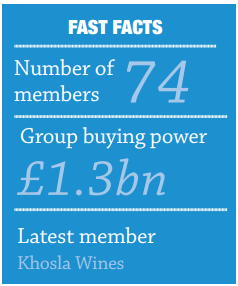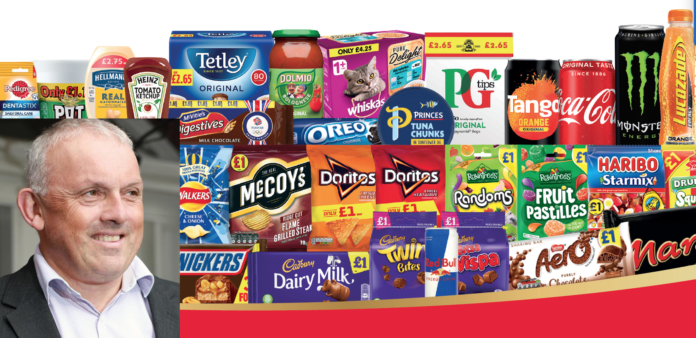What is your unique selling point?
Being incredibly focused on our members is one that gets brought up a lot. We have around 75 members and get to know them and their needs very well. We may not be the biggest buying group, but we aim to be the best in terms of results for members.
The sense of community between Sugro wholesalers is strong. If it’s possible to have a second USP, we specialise in impulse categories of soft drinks, confectionery and snacks.
What has been your most significant achievement over the past 12 months?
When the pandemic hit, many of our wholesalers were badly affected as they service contracts in leisure and hospitality. We helped them with constant communication and supplier support.
The issues have varied, from a lack of supplies, to how to adapt to e-commerce to starting to trade again. I recall one trade observer saying that anything better than a 10% drop in business would be a positive.
We are taking nothing for granted, but business through the group is up 8% for the yearlong period up to the end of August, and July was up 42%. This is as a result of keeping on top of every issue through the year and some incredibly entrepreneurial members.
How have you expanded and attracted new members over the past 12 months?
We have recruited several new members this year through word-of-mouth recommendation and traditional marketing. New members are a healthy lifeblood, but we place as much emphasis on developing business through the group for our existing members, and many of our entry-level Acorn members have upgraded to full membership through the year. This means they participate more, which is equally satisfying.
What are your plans to help members over the next 12 months?

Our trading strategy under Yulia Petitt (née Goodwin) will concentrate on developing business for members, with the Sugro app and e-commerce being the centrepiece of that. We work to create Sugro as a thriving marketplace where business gets done.
Not all our members are the same shape and size, so we work with them individually to create a business plan for them with us, which may include things like new suppliers and products, as well as a strong central promotional offer.
How has your business adapted to the Covid-19 pandemic?
We took an approach of communication. We have maintained normal business through Zoom calls with suppliers and members and run an online trade show in July, with 400 member/supplier meetings.
It was this that led to the 40% sales growth in July. Our staff have worked remotely since March incredibly smoothly and we do regular departmental and whole-team updates for them as well.
What are the biggest challenges for your members over the next 12 months?
We are facing the prospect of a second Covid wave and a potential no-deal Brexit, which may disrupt supplies. Wholesalers are under pressure from the same issues in the economy as everyone else. We are acutely aware of the need to support them and keep our central costs low. I think we are wise to adopt the same thinking as we have used through the pandemic well into and through 2021.
- Read more wholesale industry profiles








